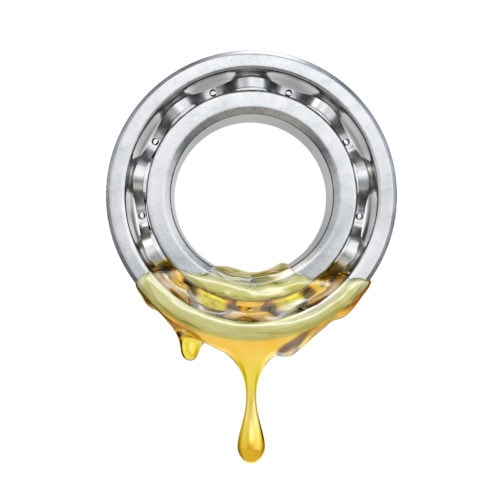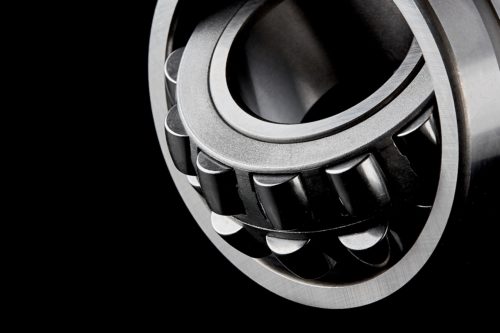Apr . 15, 2024 15:00 Back to list
Top 3 Reasons Why You Should Use Roller Bearings?
From the simplest home appliance to the most complex industrial equipment, precision engineering is essential for safe, reliable moving parts. Connections must allow unrestricted movement, which is where roller bearings come in. Like ball bearings, roller bearings are meant to minimize friction while managing a load, but instead of having point contact, roller bearings have line contact. This gives them greater shock resistance and capacity, and they come in a variety of shapes, including cylindrical, tapered, spherical, and needle profiles, to suit various applications.
Why should you use roller bearings? Take a look:
They Are Strong & Durable
Even though ball bearings handle misalignment better than roller bearings, roller bearings can manage more shock and impact. With their larger contact area, they’re designed to be used with larger loads and lower speeds, and each roller bearing shape has its unique advantages. Tapered and spherical roller bearings in particular are best at managing combined radial and thrust loads, for example. Overall, roller bearings are the preferred solution for heavy-load industrial applications.
They Can Be Greased or Lubricated
Even with the right care and maintenance, bearings eventually fatigue to the point of failure, and they should be monitored as part of your regular maintenance program. Predictive maintenance allows you to replace bearings when needed instead of waiting for the entire machine to break down. In the meantime, proper lubrication is key to prolonging the service life of your bearings and ensuring optimum performance of your equipment.
Lubricant serves several functions:
- Reduce friction and wear and tear
- Remove the heat generated by friction
- Cover the contact surface to reduce fatigue
- Prevent corrosion
- Prevent contamination (dirt, debris, etc.)
Proper bearing maintenance includes the right lubricant and lubricating method, which will help your bearings last longer. In some cases, you can take advantage of the latest sealing technology to ensure you don’t have to re-grease your bearings, thereby reducing maintenance requirements.
There Are More Options Based on Geometry
There are different shapes of roller bearings suited to different operations:
- Standard Cylindrical Roller Bearing: They don’t work with thrust loads, but it’s a trade-off for their greater radial load capacity. They’re available in single, double, and multi-row options.
- Needle Roller Bearing: These are similar to the cylindrical bearings, but they have a smaller diameter. This allows the needle roller bearing to be used for operations with less radial space, but it also means the bearing oscillates quickly and produces a lot of friction. Therefore, it’s better suited to slow-moving equipment.
- Tapered Roller Bearings: The tapered shape, which can have an angle of up to 30 degrees, is designed to accommodate thrust loading. The greater the taper, the more axial load the bearing can tolerate. These are most commonly used in pairs.
- Spherical Roller Bearings: Ideal for both axial loading and heavy shock loading, spherical bearings can manage a heavy load even when misaligned.
When choosing the roller bearing for your application, you have to consider loading type and capacity, as well as any lubricant or sealing and shielding requirements. However, the choice between ball bearings and roller bearings is somewhat more straightforward: choose ball bearings for light loads and fast speeds, and choose roller bearings for heavy loads and high impact operations.
At Emerson Bearing, we have years of experience with precision bearing manufacturing for industries like mining, material handling, food processing, transportation, recreation, robotics, wastewater treatment, plastic processing, power generation, and more. We can help you determine which bearings are right for your application. Contact us to learn more about the benefits of roller bearings or to request a quote for your project.
ur blog post content here…
Latest news
-
Spherical Bearings Enabling Bionic Joint Over-Rotation
NewsAug.22,2025
-
Stainless Steel Sphericals: Botong's Harsh-Environment Heroes
NewsAug.22,2025
-
Spherical Roller Thrust Bearings For Space Elevator Anchors
NewsAug.22,2025
-
Axial Spherical Roller Bearing: Xingtai's Motion Architects
NewsAug.22,2025
-
Ceramic Coated Bearings For Fusion Reactor Plasma Whirlpools
NewsAug.22,2025
-
Botong's Zirconia Bearing: Defying Metal Limits
NewsAug.22,2025
